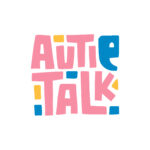Which career should I choose?
A guide for Autistic adults
As Autistic adults, it can be hard finding a career that is meaningful, sustainable, and the right fit for us. However, if you do find it, your career can be a source of not only income, but passion, contentment, connection with community, personal growth, and more. So, how do we find what works for us? What career should an Autistic adult choose? There are four key considerations that will be discussed throughout this blog piece. Let’s dive in!
Consideration 1: What jobs are in demand now and in the future?
To successfully find a career, one prerequisite is that there are jobs available. Another is that these jobs will be available not only now, but into the future. The occupations currently experiencing the most growth and demand in Australia, according to the Department of Employment (1), include:
- Human resource professionals
- Healthcare professionals (general practitioners, psychologists, nurses, and the likes)
- Educators and teachers
- Data analysts and scientists
- Tech professionals (software, application, and web programmers, to name a few)
- Digital and content marketers
- Construction workers
What about looking into the future with a labour market that is becoming more automated, digital, and dynamic than ever before? Whilst some industries will decline, leading to job losses, technological advances are also expected to cause some industries to rapidly grow (2). In particular, there is a growing demand for artificial intelligence skills in the job market (3), as well as for general technological, social, emotional, and higher cognitive skills (4). In other words, to stay relevant with our chosen career path, we need to be able to add value beyond what can be done by automated systems and intelligent machines, be able to operate in a digital environment, and have the ability to continually adapt to new ways of working.
Consideration 2: What are your strengths as an Autistic person?
While no two brains are alike, Autistic people may share strengths and talents that translate into excelling at our chosen career path. Some of these traits include creativity, innovation, visual thinking, attention to detail, strong sense of justice, capacity for deep focus, problem-solving skills, pattern recognition, and more (5, 6). Getting to know our personal strengths is important so that we can select a career path that aligns with, and champions, what we naturally excel at.
Consideration 3: What are your interests?
It is important to not only find a profession that aligns with your strengths, but also one that is born from your interests or passions. Deep devotion or focus on our interests is often a large part of being Autistic. Research suggest that our passionate interests as Autistic people often provide us with meaning, grounding, and engagement, to name just a few positive benefits (6). Our deep interests are also a potential strength in and of themselves, giving rise to devotion and specialisation in topics that we are passionate about. Therefore, it can be extremely beneficial to choose a career that centres a topic of our interest.
Consideration 4: What environments are sustainable for you to work in?
Last, but not least, we need to consider the type of environment that allows us to thrive in our chosen career. Each Autistic person is different, so a suitable work environment will be based on your own personal needs and preferences. To find the right environment fit for you, it can help to ask the following questions about sensory, social, and cognitive needs at work:
- Sensory: Do I thrive in a quiet workspace or one that is busy and dynamic? Is there a uniform and is this something that is comfortable enough for me to wear often? Am I able to wear headphones or use other sensory tools in this role? What other sensory needs do I have and will they be met in this environment now and over time?
- Social: What types of social demands are there in this kind of career or workspace? Will meeting these demands drain my energy? Is there flexibility to work in a way that allows me to feel socially safe, comfortable, and to communicate in my preferred way?
- Cognitive: Do I prefer to work through tasks independently or collaboratively? What environments allow me to best focus and feel productive? Do I prefer detail-oriented projects, big picture tasks, or both?
These are just some examples of questions to get to know our unique sensory, social, and cognitive needs. Self-understanding paves the way to choose (or create) a work environment that is sustainable long term, because it meets our needs as Autistic people.
Take Home Message
To decide on the right career as an Autistic person, it helps to consider job availability now and into the future, your personal strengths and interests, and the sort of environment that allows you to thrive in the long run. Hopefully, this will help guide you into a profession that is sustainable, meaningful, and the right fit for the authentic you.
Reference List
- University of Wollongong. (2023). Top 20 Skilled Careers in 2023. Available at:https://www.uow.edu.au/the-stand/2018/top-20-skilled-careers-in-2023.php
- Bessen, J. (2019). Automation and Jobs: When Technology Boosts Employment. Available at: https://academic.oup.com/economicpolicy/article-abstract/34/100/589/5709812
- Alekseeva et al. (2021). The Demand for AI Skills in the Labour Market. Available at: https://www.sciencedirect.com/science/article/abs/pii/S0927537121000373
- Dondi et al. (2021). Defining the Skills Citizens will Need in the Future of Work. Available at: https://icenimastermind.org/wp-content/uploads/2022/02/Defining-skills.pdf
- Pietrucha, M. (2022). Neurodiversity and Entrepreneurship. Available at: https://www.onlinemba.com/blog/neurodiversity-entrepreneurship/#:~:text=While%20no%20two%20brains%20are,thinking%2C%20and%20attention%20to%20detail.
- Adams, A. (2022). The Voices of Autistic Women and Non-binary People. Available at: https://www.findingautism.com.au/blog/the-voices-of-autistic-women
Article written by our highly talented researcher and writer Amy Adams.
